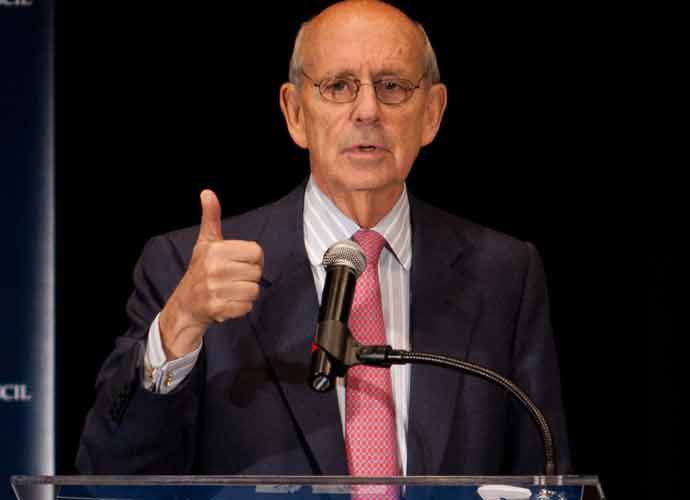Republicans Plan To Block Any Replacement For Supreme Court Justice Breyer When He Retires
Supreme Court Justice Stephen Breyer has said that he plans to retire in the near future. This has left legislators apprehensive about the future of his Supreme Court seat.
Democrats hope that Breyer will choose to retire as soon as possible, ideally within the next year. This would leave as much time as possible for a new justice to be confirmed, given Republicans’ recent history of rejecting Democratic picks for the Supreme Court.
“You know what the rule is on that,” said Senator Chuck Grassley (R-Iowa), the ranking Republican on the Judiciary Committee. “You go back to 1886 and ever since then, when the Senate’s been of one party and the president’s been of another party, you didn’t confirm.”
The rule to which Grassley refers does not exist.
Subscribe to our free weekly newsletter!
A week of political news in your in-box.
We find the news you need to know, so you don't have to.
In 1988, the then-Democratic majority Senate confirmed President Ronald Reagan‘s nomination of Anthony Kennedy. It also confirmed President George H.W. Bush‘s nomination of David Souter in 1990, as well as of Clarence Thomas in 1991. Grassley was in the Senate during all three of these confirmations.
Despite the Senate’s history of confirming Supreme Court nominations across party lines, Republicans have vowed not to do so in recent years. In 2016, Senate then-Majority Leader Mitch McConnell refused to even give confirmation hearings to President Obama‘s pick, Merrick Garland, and left the seat open for over a year.
Sen. Mitt Romney (R-Utah), who is not a member of the Judiciary Committee, said he believes it is “unlikely” that Republicans would practice the kind of delays that would leave the seat open for two years or more. “I would presume we’d go for the hearings and make a decision,” he said. “By the way, we might vote no, but we might as well have a hearing and make a decision.”
However, Republicans have said that they are willing to leave a seat open for years, if that is how long it will take for a Republican to take presidential office.
Lawmakers are concerned that Breyer will not retire soon enough for Biden to confirm a new justice without Republican interference. Breyer has been unclear about his plans on the matter, in large part because he does not want the choice of his successor to be political.
Democrats are critical of Breyer for delaying the inevitable on these grounds.
Robert Raven, an assistant attorney general for former President Clinton and advocate for diversity on the Supreme Court, summarized some of these concerns. “Breyer may pine for a time that never was—a fantasy era when judicial selection wasn’t political,” said Raben. “That’s a chimera, and we on the left need to accept the fact that if you’re assigned a bill number and marked up in a committee, it’s politics.”
Get the most-revealing celebrity conversations with the uInterview podcast!









Leave a comment